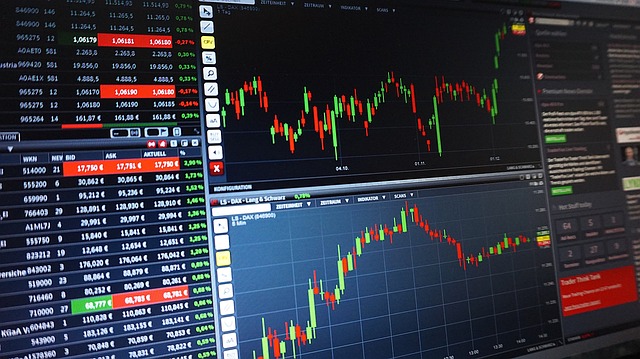In the fast-paced world of financial markets, traditional trading methods have long been the cornerstone of investment strategies. However, with the rapid advancement of technology, these conventional approaches are increasingly showing their limitations. This article explores the disadvantages of traditional trading and highlights why embracing modern solutions like Artificial Intelligence (AI) can offer significant advantages.
1. The Limitations of Traditional Trading Methods
Traditional trading methods, which often rely on manual processes and human judgment, face several inherent challenges that can hinder trading efficiency and effectiveness.
1.1 Slower Decision-Making Process
Traditional trading often involves manual data analysis and decision-making. Traders must sift through extensive market data, news reports, and financial statements to make informed decisions. This process can be time-consuming and may result in delayed responses to market changes.
- Disadvantage: Slow decision-making can lead to missed opportunities and reduced competitiveness in fast-moving markets.
1.2 Higher Risk of Human Error
Human judgment is susceptible to biases and errors. Factors such as emotional stress, cognitive biases, and fatigue can affect a trader's decision-making process, leading to potential mistakes.
- Disadvantage: Increased likelihood of errors can result in poor trade execution and significant financial losses.
1.3 Limited Data Analysis Capacity
Traditional traders often rely on manual analysis and basic tools to evaluate market data. This approach limits their ability to process large volumes of data and identify complex patterns or trends.
- Disadvantage: Limited data analysis capacity can restrict the accuracy of predictions and the ability to uncover valuable insights.
1.4 Inefficiency in Handling Large Volumes of Trades
In traditional trading environments, managing a high volume of trades can be challenging. Manual execution and monitoring of numerous trades require significant time and effort, often leading to inefficiencies.
- Disadvantage: Inefficiencies in trade management can result in slower execution and increased transaction costs.
2. The Shift Towards Modern Solutions
As the financial industry evolves, modern solutions like AI are addressing the shortcomings of traditional trading methods. Here's how AI and advanced technologies are reshaping the trading landscape:
2.1 Accelerated Decision-Making
AI-powered trading platforms can analyze vast amounts of data in real-time and provide actionable insights. This acceleration in decision-making allows traders to respond swiftly to market fluctuations and capitalize on opportunities.
- Advantage: Faster decision-making enhances competitiveness and reduces the likelihood of missing critical trading opportunities.
2.2 Reduced Human Error
AI systems operate based on algorithms and data-driven insights, eliminating the influence of human biases and emotions. This results in more consistent and accurate trading decisions.
- Advantage: Reduced human error leads to improved trade execution and better financial outcomes.
2.3 Advanced Data Analysis
AI tools are equipped with advanced analytical capabilities, enabling traders to process and interpret large volumes of data effectively. These tools can identify intricate patterns and trends that may be missed through traditional methods.
- Advantage: Enhanced data analysis provides deeper insights and more accurate predictions, supporting more informed trading strategies.
2.4 Efficient Trade Management
AI-driven platforms can automate trade execution and manage large volumes of trades efficiently. Automation reduces the need for manual intervention and minimizes transaction costs.
- Advantage: Increased efficiency in trade management leads to quicker execution and cost savings.
3. Conclusion
While traditional trading methods have served as the foundation of financial markets for decades, their limitations are becoming increasingly apparent. Slower decision-making, higher risk of human error, limited data analysis capacity, and inefficiencies in handling trades are some of the key challenges faced by traditional traders.
Embracing modern solutions like AI offers a compelling alternative. AI-powered trading platforms provide accelerated decision-making, reduced human error, advanced data analysis, and efficient trade management. As the financial landscape continues to evolve, integrating AI into trading practices can offer significant advantages and help traders stay ahead in a competitive environment.
For more insights into how AI can enhance your trading strategy and to explore the latest tools and technologies, visit our AI Profit Hunters website and discover how you can transform your trading approach.

